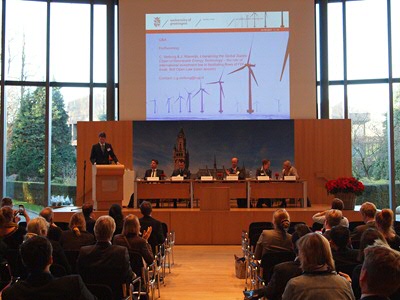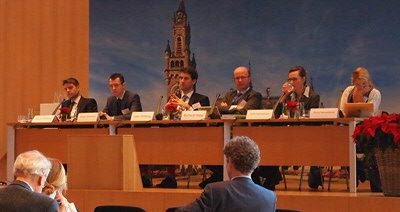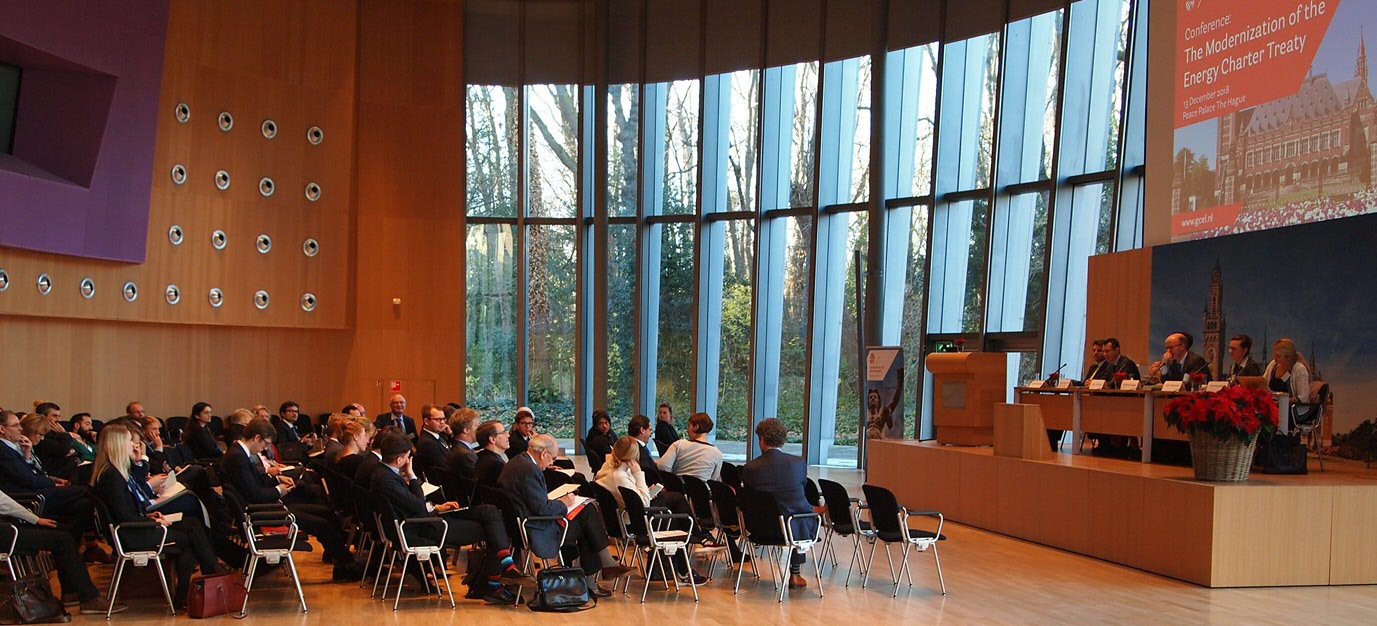GCEL organized conference on the modernization of the Energy Charter Treaty
On the 13th of December 2018, the Groningen Centre of Energy Law (GCEL) organized a conference in The Hague on the Modernization of the Energy Charter Treaty (ECT). This year marked the 20th anniversary of the entrance into force of the ECT, a multilateral treaty that regulates international trade, transit and investment in the energy sector throughout Europe and Asia.
The Energy Charter Conference has recently initiated a modernization process which aims at bringing the treaty in line with contemporary policy tendencies. In light of these milestones, GCEL invited speakers representing the Permanent Court of Arbitration, the European Commission, the Netherlands Ministry of Foreign Affairs, Law Firms and Universities as well as independent consultants. Approximately 80 participants from various professional and geographical backgrounds attended the conference at the premises of the Peace Palace in The Hague.

The conference was opened by Prof. Dr. Martha Roggenkamp (director GCEL) and the opening speech was given by Secretary General Hugo Siblesz of the Permanent Court of Arbitration. In the first panel, chaired by Prof. Dr. Marcel Brus (University of Groningen), developments in investor-state dispute settlement (ISDS) were discussed. Prof. Dr. Hans van Houtte (KU Leuven) discussed the ongoing ISDS reform, including the United Nations Commission on International Trade Law (UNCITRAL). Next, Thomas Nauta (Netherlands Ministry of Foreign Affair) discussed the challenges in future ISDS under the ECT. Amongst others, he made reference to the new model for bilateral investment treaties that was recently adopted by the Netherlands.

After the break, the focus shifted to the modernization of the substantive provisions of the ECT. The second panel was chaired by Dr. Ruven Fleming (University of Groningen). The intra-EU applicability of the ECT was discussed by Dr. Petra Nemeckova (Legal Services European Commission) and Dr. Yulia Selivanova (Independent Consultant) addressed the challenges relating to transit in the Energy Charter context. Next, Dr. Richard Happ (Luther Law Firm) reviewed the modernization of the investment chapter, in particular in relation to the standards of investment protection. Cees Verburg (University of Groningen) discussed renewable energy sources and the ECT, arguing that investment liberalization and promotion may be highly relevant in the renewable energy sector. Lastly, Dr. Sergey Seliverstov (Sokolov, Maslov and Partners) spoke about the Russian perspective to the modernization of the ECT by outlining developments in the Russian energy sector and Russian energy policy.
The official programme of the conference was concluded with the keynote speech by Graham Coop (Volterra Fietta) who analyzed the contribution of the ECT to the development of international investment law in general. The conference ended with drinks in the Peace Palace, which provided a nice social closure to the conference.

| Last modified: | 20 March 2025 09.56 a.m. |
More news
-
22 April 2025
Impact | Online advice about right to freedom of assembly
In the coming weeks the nominees for the Ben Feringa Impact Award 2025 will introduce themselves and their impactful research or project. This week: Noor Swart and Berend Roorda, on their online information initiative on the right of freedom to...
-
22 April 2025
How do you shield yourself from Big Tech's power?
How can we all become less dependent on Big Tech? A topical and urgent question that is also arising within the University. Recently, a petition by a group of staff members made the rounds that called for the University to break away from Google and...
-
15 April 2025
The Faculty of Law launches podcast The Right to News
On 16 April 2025, the Faculty of Law at the University of Groningen will launch the first episode of its podcast The Right to News (in Dutch: Recht op Nieuws). The theme of the first episode is: “Can the government just ban organizations in the...
